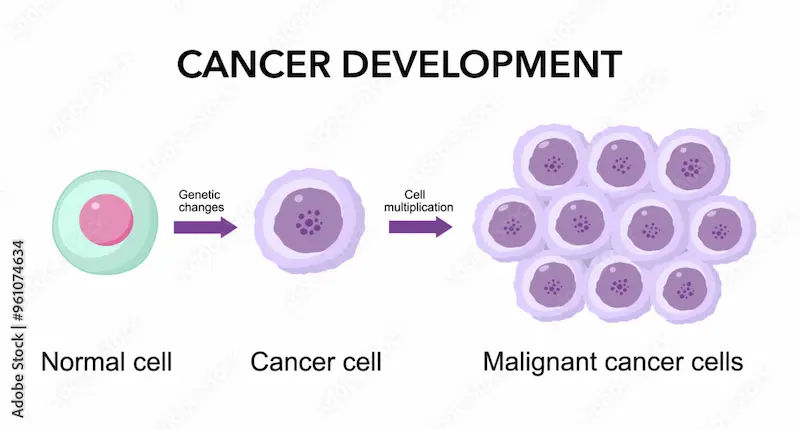Chikungunya vs. Dengue: Key Differences
Compare chikungunya and dengue by understanding their key differences in symptoms, transmission, and treatment. Learn how to identify each disease, prevent infection, and know when to seek medical attention.


Introduction
When mosquito-borne illnesses strike, they can leave you feeling weak, feverish, and confused about what’s causing your symptoms. Two common infections, Chikungunya and Dengue, often get mistaken for each other because they share similar symptoms and are spread by the same type of mosquito (Aedes aegypti). However, they are different diseases with distinct effects on your body.
Understanding the differences between Chikungunya and Dengue can help you recognize symptoms early, seek the right treatment, and take preventive measures. Let’s break it down in simple terms.
1. What Are Chikungunya and Dengue?
Chikungunya and Dengue are viral diseases spread by mosquitoes, causing fever, joint pain, and other flu-like symptoms.
Chikungunya
Caused by the Chikungunya virus (CHIKV).
The name comes from an African word meaning "to become contorted" due to severe joint pain.
Rarely life-threatening but can cause long-lasting joint pain (weeks to months).
Dengue
Caused by the Dengue virus (DENV).
Also called "breakbone fever" due to severe muscle and joint pain.
Can be life-threatening if it progresses to severe dengue, also known as Dengue Hemorrhagic Fever.
2. Symptoms: How to Tell Them Apart
While both diseases cause fever, headache, and body aches, some key differences can help you identify which one you might have.
| Symptom | Chikungunya | Dengue |
| Fever | Sudden high fever (102°F–104°F) | High fever (104°F+) |
| Joint Pain | Severe, long-lasting (weeks-months) | Mild to moderate, short-term (days) |
| Rash | Common, appears early | Appears later (after fever reduces) |
| Muscle Pain | Mild | Severe (breakbone pain) |
| Bleeding Risk | Rare | Common (nosebleeds, gum bleeding) |
| Eye Pain | Possible | Severe behind-the-eyes pain |
Key Takeaway:
If you have excruciating joint pain that lasts for weeks, it’s more likely Chikungunya.
If you have high fever with bleeding tendencies (nosebleeds, bruises), suspect Dengue.
3. Causes & Transmission
Both diseases spread through the bite of infected Aedes mosquitoes, which breed in stagnant water (like buckets, flower pots, and uncovered water tanks).
No direct human-to-human transmission (except in rare cases of mother-to-baby or blood transfusion).
Peak mosquito activity is early morning and late afternoon.
Prevention Tips:
Protect yourself from Chikungunya and Dengue by following simple tips:
Use mosquito repellents (DEET, picaridin).
Wear long-sleeved clothes.
Keep surroundings dry; remove stagnant water.
Use mosquito nets or screens.
4. How Do They Affect Your Health?
Both Chikungunya and Dengue can cause high fever, severe joint or muscle pain, and fatigue, affecting daily activities and overall well-being.
Chikungunya: Long-Term Joint Pain
While not deadly, joint pain can persist for months or even years (chronic arthritis).
Fatigue and weakness may linger.
Dengue: Risk of Severe Complications
Severe Dengue (Dengue Hemorrhagic Fever) can cause:
Plummeting platelet count (leading to bleeding).
Organ failure (liver, heart).
Shock (Dengue Shock Syndrome), a medical emergency.
Warning Signs of Severe Dengue (Seek Immediate Help!):
Severe stomach pain
Persistent vomiting
Bleeding gums/nose
Cold, clammy skin
Difficulty breathing
5. Diagnosis & Treatment
Since symptoms overlap, blood tests are needed for confirmation:
NS1 Antigen Test (early detection).
IgM/IgG Antibody Test (later stages).
Get Your Health Assessed
Treatment Differences
Treatment differences between Chikungunya and Dengue are:
| Aspect | Chikungunya | Dengue |
| Medication | No specific antiviral, only pain relief (Paracetamol). Avoid NSAIDs (Ibuprofen, Aspirin), which can worsen bleeding. | Similar; only Paracetamol for fever/pain. Avoid NSAIDs. |
| Hydration | Important but less critical. | Extremely important; prevents shock. |
| Recovery | Joint pain may persist; physiotherapy helps. | Platelet monitoring needed if severe. |
Home Care Tips:
Get relief at home with following tips:
Drink plenty of fluids (ORS, coconut water).
Rest and avoid physical strain.
Monitor fever and symptoms closely.
6. When to See a Doctor?
Consult a healthcare provider if:
Fever lasts more than 3 days.
You notice bleeding, severe pain, or dehydration signs.
Symptoms worsen suddenly.
7. Prevention is Better Than Cure!
Since there’s no vaccine for Chikungunya and Dengue vaccines are limited, the best defense is mosquito control:
Use mosquito nets & repellents.
Wear protective clothing.
Keep your home mosquito-free (clean water containers weekly).
Final Thoughts
While Chikungunya and Dengue share similarities, their long-term effects and risks differ. Knowing the symptoms helps in early detection and proper care. If you or a loved one experiences high fever with severe joint pain or bleeding, seek medical help immediately. Stay safe, stay informed, and take preventive steps to keep mosquito-borne diseases at bay!
Consult a Top General Physician for the best advice
Consult a Top General Physician for the best advice

Dr. Mohamed Azeem
General Physician/ Internal Medicine Specialist
2 Years • MBBS,MD(Internal Medicine) CCEBDM
Karaikudi
Apollo Hospitals Karaikudi, Karaikudi

Dr Syed Mateen Pasha
General Physician
2 Years • MBBS
Bengaluru
PRESTIGE SHANTHINIKETAN - SOCIETY CLINIC, Bengaluru

Dr. Anand Ravi
General Physician
2 Years • MBBS
Bengaluru
PRESTIGE SHANTHINIKETAN - SOCIETY CLINIC, Bengaluru

Dr. Syed Ismail Ali
General Practitioner
7 Years • MBBS
Hyderabad
Apollo 24|7 Clinic, Hyderabad

Dr. Sandhya Chandel
General Physician/ Internal Medicine Specialist
16 Years • MBBS, MD (Int. Med.), IDCCM
Bilaspur
Apollo Hospitals Seepat Road, Bilaspur
(125+ Patients)





